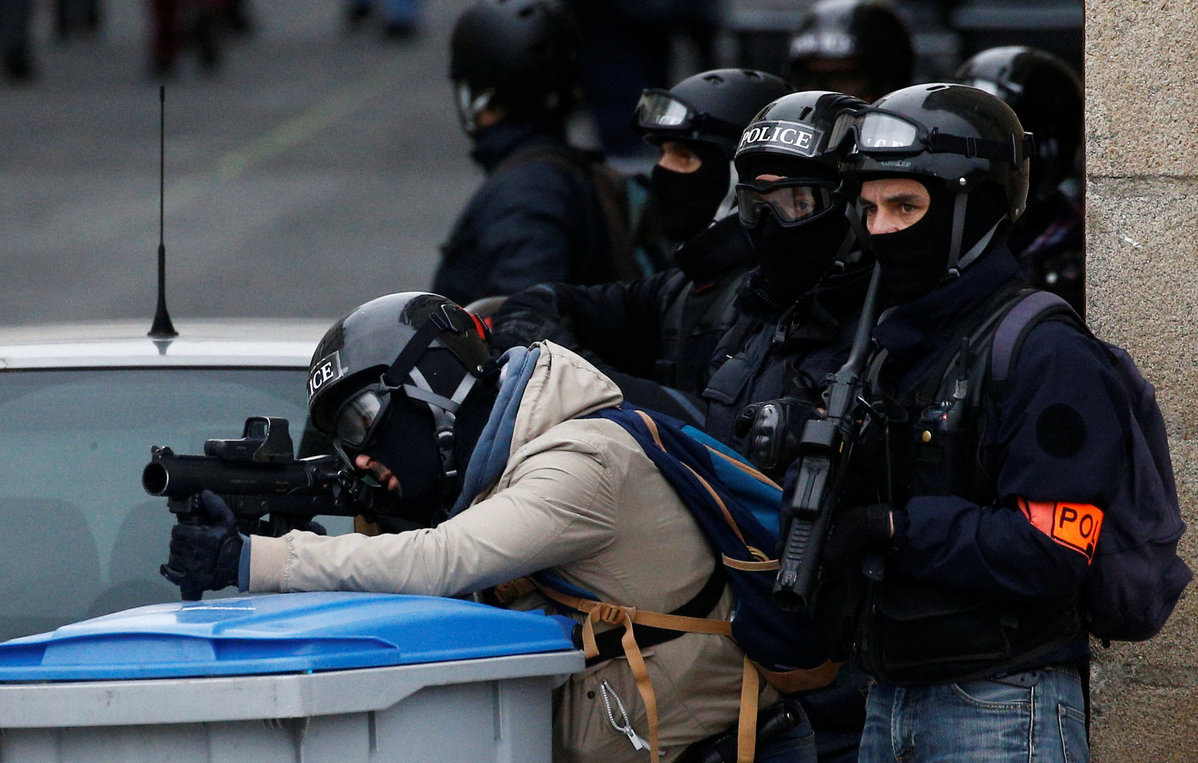
French police officer aims at protesters during a demonstration of the "yellow vests" movement in Nantes, France Jan 26, 2019. (Photo: Agencies)
Serious injuries reported by gilets jaunes protesters
France's government is under pressure to reconsider the use of explosive weapons by riot police after several people involved in the recent gilets jaunes protests reported serious injuries.
The French Human Rights League and the CGT trade union have appealed to the country's highest legal body, the council of state, to ban the use of a particular type of hand-held rubber-bullet launcher which shoots "sting-ball" grenades, containing tear gas and TNT high explosive.
France is the only country in Europe where such devices are permitted, and last week one of the protest leaders, Jerome Rodrigues, was struck in the face in an incident streamed live on Facebook. His lawyer says he has been left with a permanent disability.
The gilets jaunes, or yellow vests, protests began in November, against a fuel eco-tax, but have grown into wider nationwide anti-government demonstrations.
It is alleged that since the protests began, as many as 17 people have lost eyes due to police weapons, and at least three have lost hands.
Lawyers and journalists logging injuries caused by police weapons estimate there have been at least 100 injuries, and the French police watchdog has opened 101 investigations. Interior minister Christophe Castaner says 1,900 people have been injured, 1200 of them police officers.
At the most recent protests, for the first time officers using sting ball launchers were instructed to wear body cameras, but there have been doubts raised as to their reliability.
"In the 1980s, if one person was hit in the eye at a demonstration there would be a huge reaction, yet now there is no reaction from government," said lawyer Aïnoha Pascual, who represents several people who have been injured, including suffering hearing loss and facial injuries.
Human Rights League lawyer Arié Alimi said the wrong weapon was being used in the wrong situation.
"This … is not adapted to demonstrations, where people come in large numbers and move fast. It's impossible to get the result you want when you use it. That's why you have a lot of people injured," he said. "When you use that kind of weapon, it's not to defend, it's really in fact to prevent people from going to demonstrations."
As well as those directly involved in the protests, there have been collateral injuries. In Marseille an 80-year-old woman closing her window shutters during a demonstration died after being struck by a police teargas canister.
Castaner defended police actions, saying France is "dealing with a crisis," and that as protests grow, there is an increasing number of people "who come with the intention of clashing with security forces."


